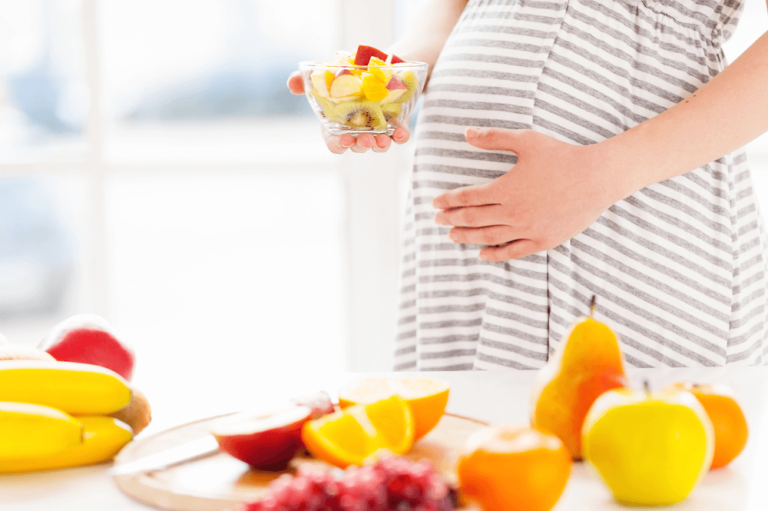How to Deal with Morning Sickness: Tips and Remedies for Expecting Moms

Morning sickness is one of the most common symptoms experienced by pregnant women, particularly during the first trimester. Characterized by nausea and, in some cases, vomiting, it can make the early weeks of pregnancy more challenging. While it’s often referred to as “morning” sickness, this discomfort can occur at any time of day. Fortunately, there are effective ways to manage morning sickness and feel more comfortable during pregnancy.
What Causes Morning Sickness?
Morning sickness is primarily caused by the hormonal changes that occur during pregnancy. The rapid increase in hormones such as human chorionic gonadotropin (hCG) and estrogen can trigger nausea. Additionally, pregnant women often become more sensitive to smells and certain foods, which can make the nausea worse.
If you’re noticing that certain smells or foods trigger your morning sickness, it might be due to food aversions, a common phenomenon during pregnancy. These aversions can cause a sudden dislike for foods you normally enjoy, making it even harder to eat. To understand more about food aversions and why your appetite changes during pregnancy, check out this article.
When Does Morning Sickness Start and End?
Morning sickness typically begins around the sixth week of pregnancy and peaks between the eighth and eleventh weeks. For most women, it subsides by the second trimester, around week 12 to 14. However, some women may experience nausea throughout their pregnancy, though it’s less common in the later stages.
Simple Remedies for Morning Sickness
Managing morning sickness often involves trial and error, as different remedies work for different women. Here are some simple and effective ways to ease nausea:
- Eat Small, Frequent Meals: Instead of having three large meals a day, try eating smaller meals more frequently. Keeping something in your stomach can help reduce nausea.
- Ginger: Ginger has long been used as a remedy for nausea. Try ginger tea, ginger ale, or ginger candies to help ease your symptoms.
- Stay Hydrated: Dehydration can make morning sickness worse, so make sure you drink plenty of water throughout the day.
For more helpful tips on managing the first trimester, including dealing with morning sickness, check out this First Trimester Survival Guide.
Foods That Help with Morning Sickness
Certain foods can help alleviate nausea, while others may trigger it. Here are some of the best foods to eat when you’re feeling nauseous:
- Bland Foods: Opt for bland foods like crackers, plain toast, rice, or applesauce. These foods are easy to digest and less likely to upset your stomach.
- High-Protein Snacks: Protein-rich foods like nuts, cheese, or yogurt can help stabilize blood sugar levels and reduce nausea.
- Fruits and Vegetables: If you can tolerate them, fruits like bananas and vegetables like carrots can provide essential nutrients without overwhelming your stomach.
On the flip side, avoid greasy, spicy, or overly fatty foods, as these can worsen nausea.
Hydration and Morning Sickness
Staying hydrated is essential during pregnancy, but it can be difficult when you’re feeling nauseous. To help keep fluids down, try sipping on water throughout the day rather than drinking large amounts at once. You can also try cold drinks like ice water, or add a splash of lemon or lime to make it more refreshing.
If plain water isn’t appealing, try herbal teas or electrolyte drinks. Coconut water can also be a good source of hydration and essential minerals.
Acupressure and Other Natural Remedies
Some women find relief from morning sickness by using acupressure. Acupressure wristbands, commonly used to prevent motion sickness, can also help reduce pregnancy-related nausea. These bands apply gentle pressure to a point on the inside of the wrist known to alleviate nausea.
In addition to acupressure, certain essential oils like peppermint and lemon may help ease nausea when inhaled. Just be sure to check with your healthcare provider before using any essential oils during pregnancy.
Lifestyle Changes to Minimize Morning Sickness
Making a few adjustments to your daily routine can also help minimize nausea:
- Rest: Fatigue can make nausea worse, so ensure you’re getting plenty of rest. If possible, take naps during the day or go to bed earlier.
- Avoid Triggers: If certain smells or foods are making you feel sick, do your best to avoid them. Open windows for fresh air or ask someone else to cook if the smell of food bothers you.
- Keep Snacks Nearby: Having a light snack, like crackers or dry cereal, by your bed can help reduce morning nausea when you wake up.
When to See a Doctor About Morning Sickness
While morning sickness is generally a normal part of pregnancy, some women experience a more severe form known as hyperemesis gravidarum. This condition involves excessive vomiting, dehydration, and weight loss and requires medical attention. If you’re unable to keep food or liquids down or are losing weight rapidly, it’s important to see your doctor. They may prescribe medication or other treatments to help manage your symptoms.
Conclusion
Dealing with morning sickness can be tough, but with the right strategies and support, you can reduce nausea and make the early stages of pregnancy more manageable. Remember to stay hydrated, eat small meals, and rest as much as possible. If your symptoms become too severe, don’t hesitate to reach out to your doctor for help. Ultimately, every woman’s experience with morning sickness is unique, so listen to your body and find what works best for you.





